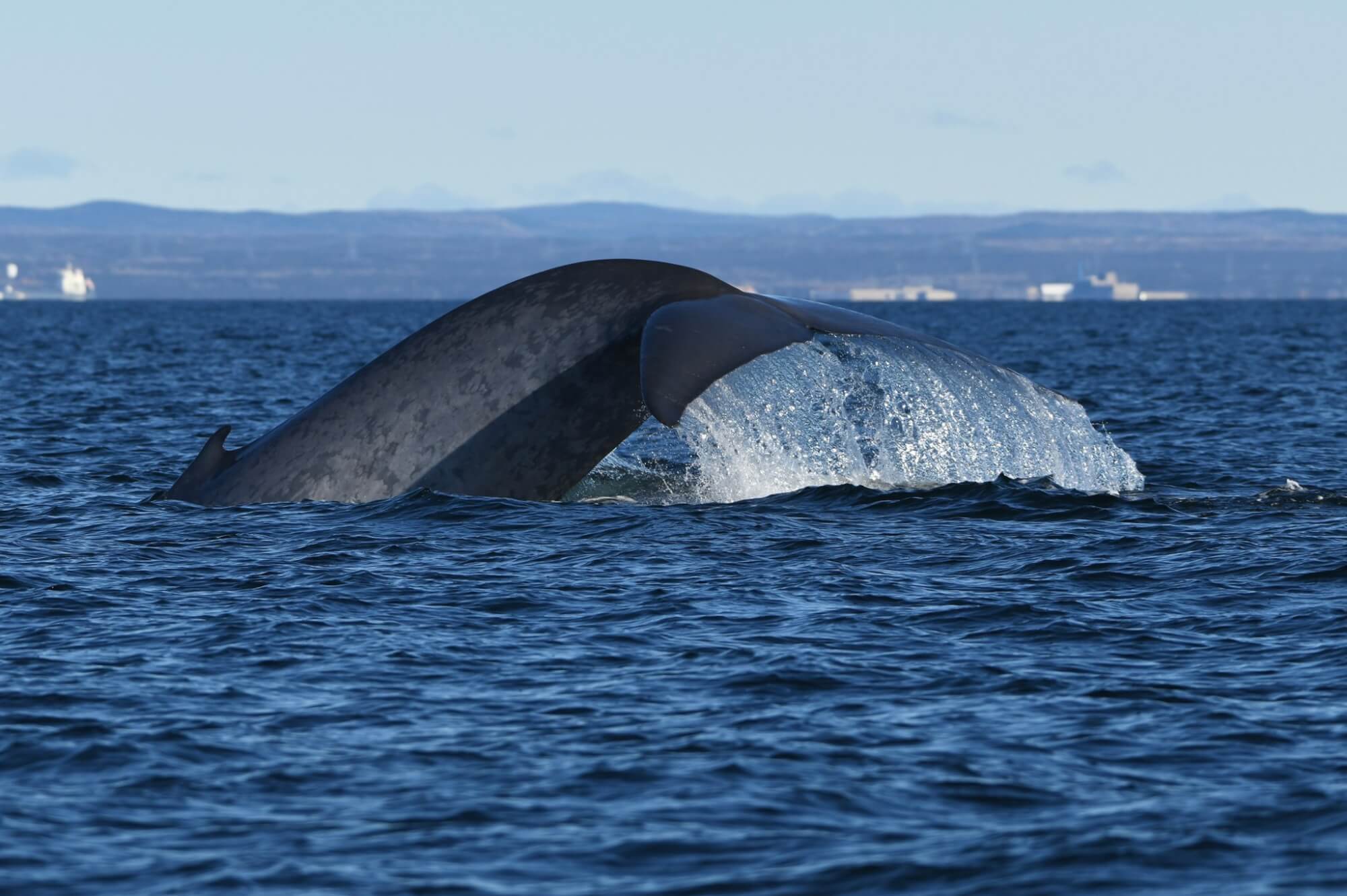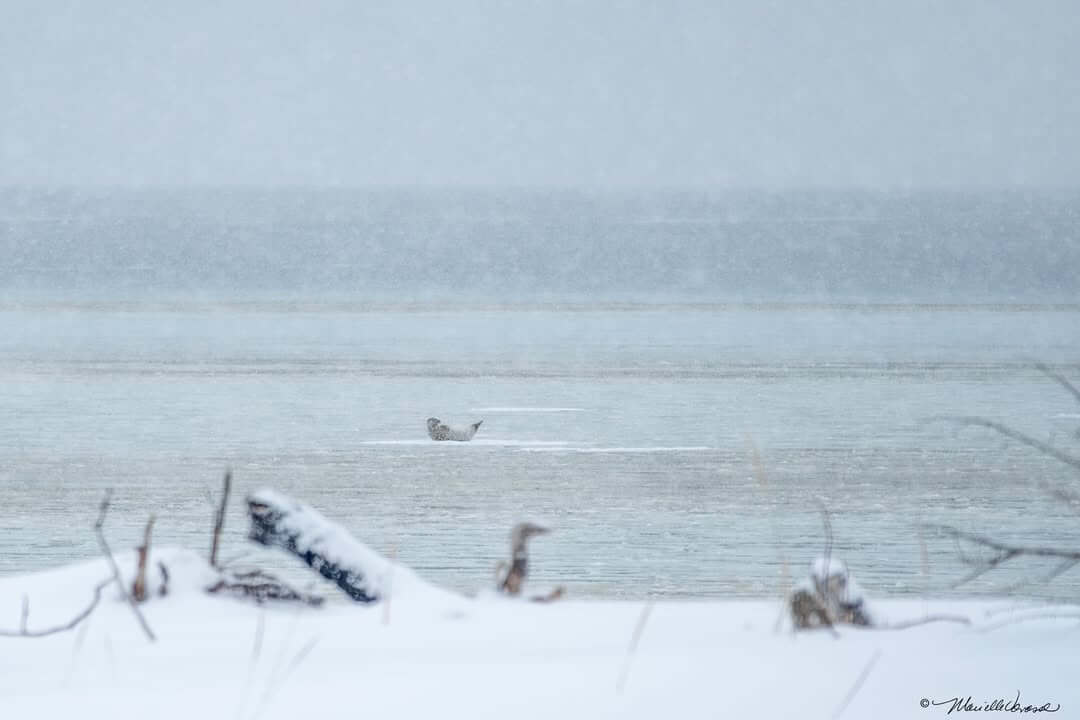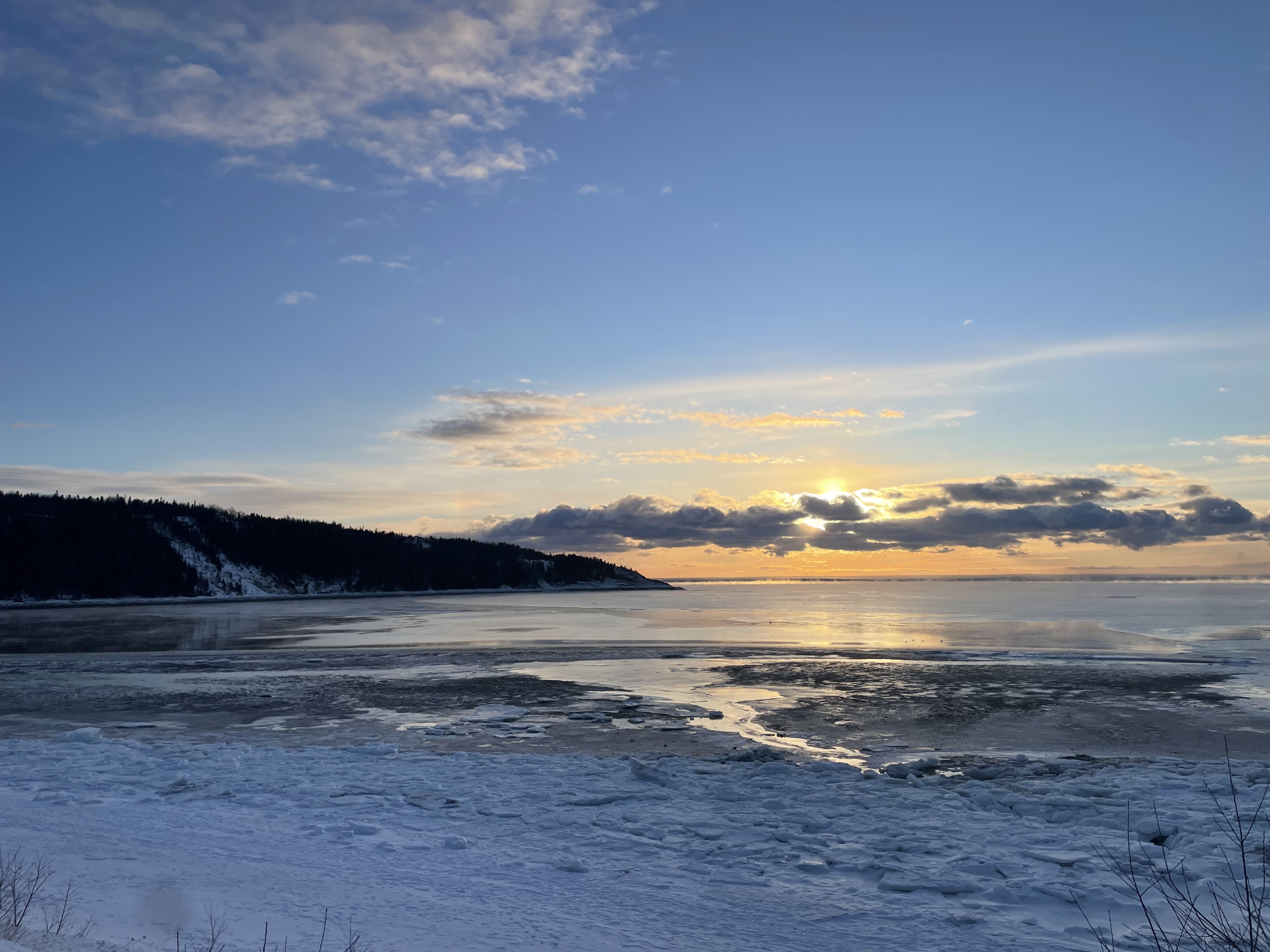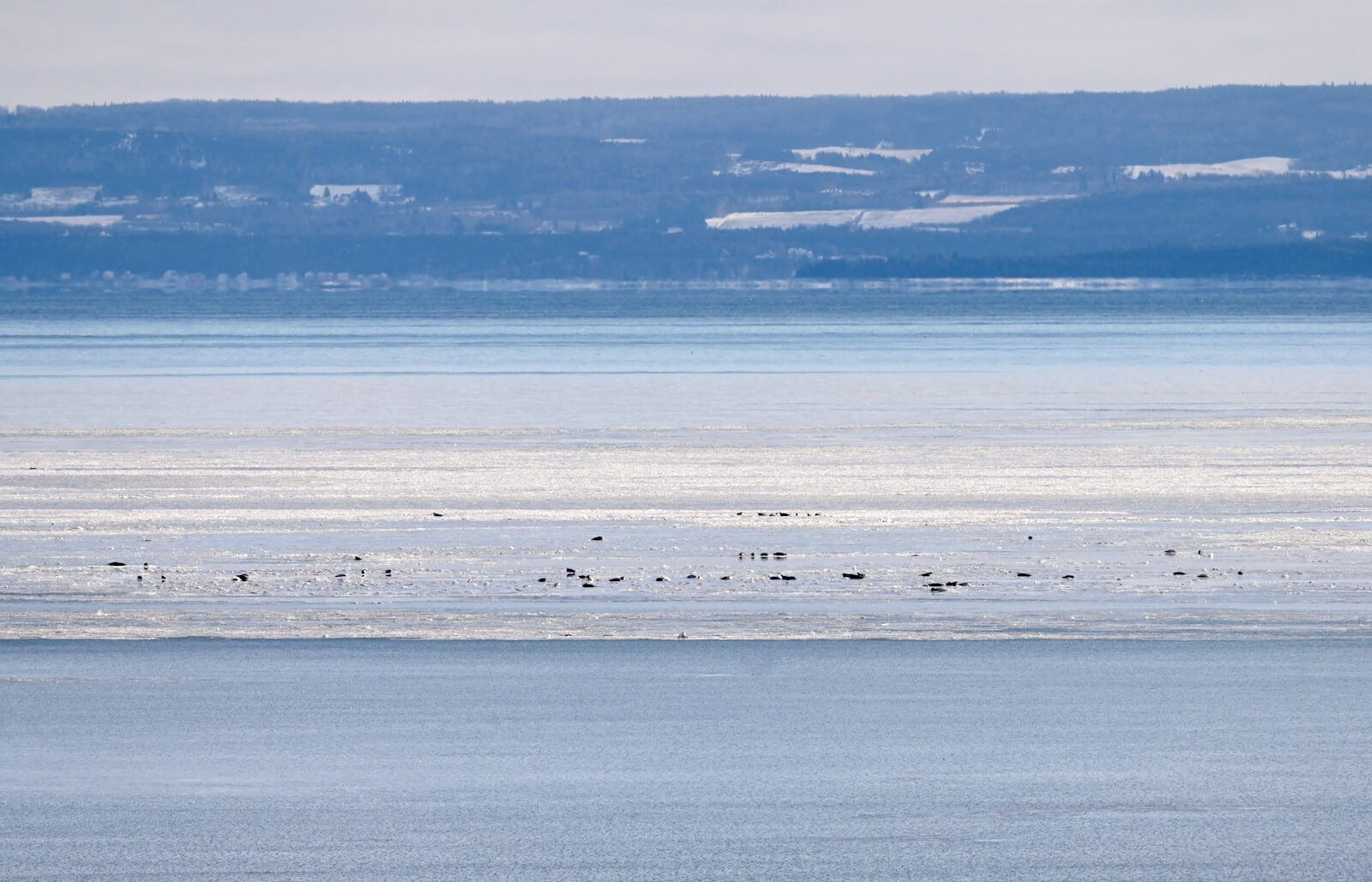As the number of eyes scanning the water decreases, the number of sightings reported is also on the decline. Are there fewer whales in these parts?
Despite being posted daily at the Tadoussac dunes, a birder conducting surveys has not seen any fin whales for a few days and practically no more minke whales. “There are still a few humpbacks,” he reports. He also notes groups of belugas. Are they the same ones that have been spending most days in front of the Marine Mammal Interpretation Centre? Could be.
At the docks in Les Escoumins, workers are experiencing a similar situation. “We aren’t seeing anything from the docks anymore!” exclaims one employee. His colleagues working out at sea are still spotting a few whales, but nothing near the coast. Migration to the whales’ winter quarters appears to be underway.
Whales come to the St. Lawrence to feed. Some will remain a few days, while others will linger a few weeks or all summer long. Then, with the exception of the year-long resident St. Lawrence belugas, the whales will return to their winter quarters. In the case of baleen whales, which generally go all winter without food, summer feeding is particularly important to build up their reserves.
Migrating may also be part of a reproduction strategy. Undoubtedly, this is why humpback whales congregate in the waters of the Caribbean in winter. These large gatherings may facilitate the pairing of males and females. Certain species are believed to migrate to protect their young from predation by killer whales, which are more common at higher latitudes. Within a given population, there may be some individuals that migrate and others that do not. They might be non-reproducing individuals such as juveniles, “uncompetitive” males, or females that are not gestating or that will not mate that year. Will we see some of these non-migratory whales in the St. Lawrence this winter?
Where the Estuary meets the Gulf, the number of tallied individuals increases a little, though still far shy of the numbers recorded in summer. Around Pointe-des-Monts, nearly a dozen or so isolated humpbacks are observed. Off the coast of Sept-Îles, at least six blue whales are photographed on October 19. Two individuals show their tails. “I see them every fall,” says longtime observer Jacques Gélineau. He also encounters two humpbacks and six fin whales. In the same vicinity, many other spouts appear, but are too far away to identify the species. Near the coast of Port-Cartier, he spots a minke whale. “No more harbour porpoises though.”
On the other side of the river in the Gaspé Peninsula, Christian Ramp, research coordinator for the Mingan Island Cetacean Study (MICS), is out at sea with René Roy. From the town of Gaspé, they cross paths with five humpbacks, a fin whale, several minke whales and a dozen or so blue whales.
For a whale-watching outfitter based in Forillon National Park, the 2019 observation season is over. “It was a particularly good season. From early June to mid-August, we had many humpbacks and a nice diversity in sightings. Every year is different, but that’s the beauty and challenge of whale-watching,” he concludes.





